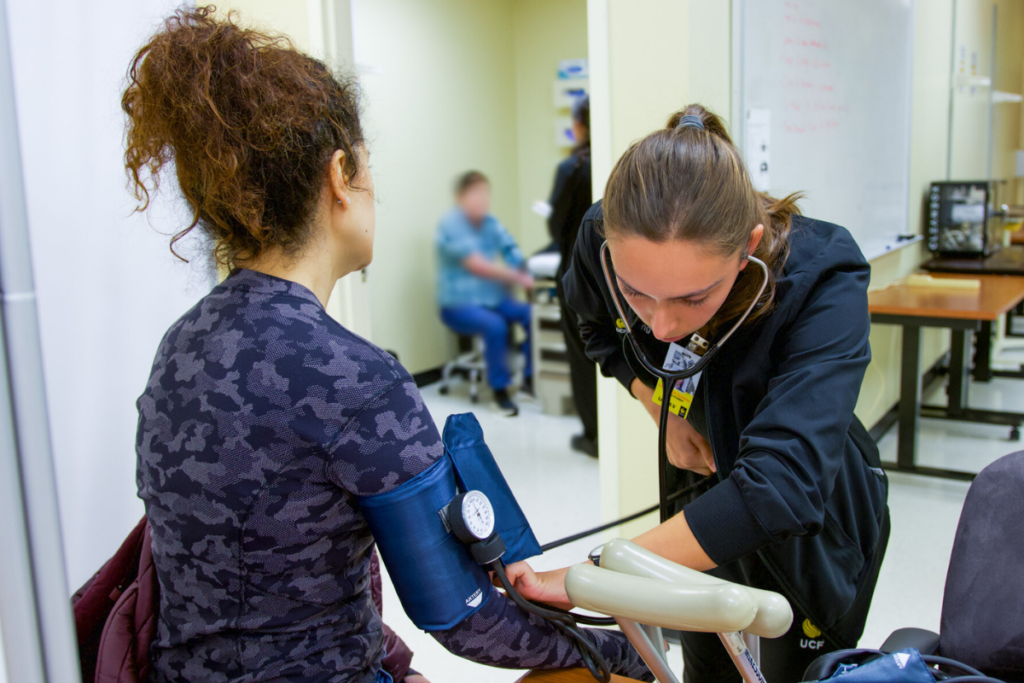Thanks to a $25,000 grant from the Josiah Macy Jr. Foundation, UCF will bring a rural health clinic experience to the classroom to prepare future healthcare providers.

Beginning this fall, students from UCF’s Academic Health Sciences Center will have an opportunity to provide care in a rural health clinic without having to leave campus.
Created by healthcare simulation expert and nursing professor Desiree Díaz, the simulated interdisciplinary clinic will provide an opportunity for students to work together across healthcare professions to care for rural residents while navigating language barriers and cultural differences. The residents are standardized and embedded participants, actors trained for simulation experiences to create a standardized experience for all students.
“It’s going into a rural clinic, where it may be crowded in the waiting area, and trying to get a basic health history in a short amount of time from patients with varied ages and backgrounds,” says Díaz of the experience.
The simulation experience was piloted with 150 undergraduate nursing students this past spring and summer. This fall, in addition to undergraduate nursing students, graduate nursing students and students from the College of Health Professions and Sciences will be invited to participate.
“This simulation has been a wonderful addition to the learning experience for undergraduate students, in the traditional BSN program and accelerated BSN program,” says Geraldine Luzincourt, co-investigator on the grant and associate nursing instructor. “This simulation has helped students to realize early in their education that nurses play a crucial role in assisting the community in finding resources.”
For some students, the simulation may be the only rural healthcare experience and training they receive during their studies due to limited real-life rural healthcare clinical experiences.
In the U.S., approximately 20% of the nation lives in rural communities and in Florida, 11% of the population lives in a rural area. However, rural communities face greater challenges both for patients and healthcare providers due to social determinants of health including economic, social, cultural, educational and geographical factors. Rural residents also face health inequities with higher rates of diabetes and heart disease.
In addition to the clinic simulation experience, students also take part in a role-play activity to deepen their understanding of the struggles rural residents in accessing quality healthcare. This type of simulation activity has been shown to deepen understanding and empathy. In the simulation, students are given a card with a background story, which includes demographics of a rural resident, their monthly income, appointments, and responsibilities. Based on the cards, students are tasked with making decisions related to life and healthcare in a certain amount of time.
“In the pilot, the experience was very eye-opening for students,” says Díaz. “They gained an appreciation for how challenging everyday life can be for some people who lack access to healthcare and services.”
More than 150 additional students are expected to experience the simulation program in Fall 2024. The program will be incorporated into existing classes. “The intent is to create an interdisciplinary experiential learning activity that all future healthcare professionals can learn from,” says Díaz.
Has the UCF College of Nursing Positively Impacted You?
The mission of the College of Nursing at the University of Central Florida is to prepare nurse leaders and patient advocates through excellence in education, research and service.
Find out how to give back to your college, today!